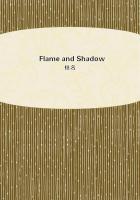The girl stood looking at the ingenious forger with an odd, breathless smile. It was difficult to determine, however, if gratified curiosity were not its most dominant expression.
"And you've got a wife--and THAT'S her?" she resumed.
"Yes."
"Where did you first meet her? Who is she?"
"She's an actress--mighty popular in 'Frisco--I mean New York. Lot o' chaps tried to get her--I cut 'em out. For all dad's trying to keep me at Dawson's--I ain't such a fool, eh?"
Nevertheless, as he stood there stroking his fair mustache, his astuteness did not seem to impress his sister to enthusiastic assent. Yet she did not relax her breathless, inquisitive smile as she went on:--
"And what are you going to do about dad?"
He turned upon her querulously.
"Well, that's what I want to talk about."
"You'll catch it!" she said impressively. But here her brother's nervousness broke out into a weak, impotent fury. It was evident, too, that in spite of its apparent spontaneous irritation its intent was studied. Catch it! Would he? Oh, yes! Well, she'd see WHO'D catch it! Not him. No, he'd had enough of this meanness, and wanted it ended! He wasn't a woman to be treated like his sister,--like their mother--like their brother, if it came to that, for he knew how he was to be brought back to take Bijah's place in the spring; he'd heard the whole story. No, he was going to stand up for his rights,--he was going to be treated as the son of a man who was worth half a million ought to be treated! He wasn't going to be skimped, while his father was wallowing in money that he didn't know what to do with,--money that by rights ought to have been given to their mother and their sister. Why, even the law wouldn't permit such meanness--if he was dead. No, he'd come back with Lottie, his wife, to show his father that there was one of the family that couldn't be fooled and bullied, and wouldn't put up with it any longer. There was going to be a fair division of the property, and his sister Annie's property, and hers--Zuleika's--too, if she'd have the pluck to speak up for herself. All this and much more he said. Yet even while his small fury was genuine and characteristic, there was such an evident incongruity between himself and his speech that it seemed to fit him loosely, and in a measure flapped in his gestures like another's garment. Zuleika, who had exhibited neither disgust nor sympathy with his rebellion, but had rather appeared to enjoy it as a novel domestic performance, the morality of which devolved solely upon the performer, retained her curious smile. And then a knock at the door startled them.
It was the stranger,--slightly apologetic and still humorous, but firm and self-confident withal. She was sorry to interrupt their family council, but the fire was going out where she sat, and she would like a cup of tea or some refreshment. She did not look at Jack, but, completely ignoring him, addressed herself to Zuleika with what seemed to be a direct challenge; in that feminine eye-grapple there was a quick, instinctive, and final struggle between the two women. The stranger triumphed. Zuleika's vacant smile changed to one of submission, and then, equally ignoring her brother in this double defeat, she hastened to the kitchen to do the visitor's bidding. The woman closed the door behind her, and took Zuleika's place before the fire.
"Well?" she said, in a half-contemptuous toleration.
"Well?" said Jack, in an equally ill-disguised discontent, but an evident desire to placate the woman before him. "It's all right, you know. I've had my say. It'll come right, Lottie, you'll see."
The woman smiled again, and glanced around the bare walls of the room.
"And I suppose," she said, drily, "when it comes right I'm to take the place of your sister in the charge of this workhouse and succeed to the keys of that safe in the other room?"
"It'll come all right, I tell you; you can fix things up here any way you'll like when we get the old man straight," said Jack, with the iteration of feebleness. "And as to that safe, I've seen it chock full of securities."
"It'll hold one less to-night," she said, looking at the fire.
"What are you talking about?" he asked, in querulous suspicion.
She drew a paper from her pocket.
"It's that draft of yours that you were crazy enough to sign Dawson's name to. It was lying out there on the desk. I reckon it isn't a thing you care to have kept as evidence, even by your father."
She held it in the flames until it was consumed.
"By Jove, your head is level, Lottie!" he said, with an admiration that was not, however, without a weak reserve of suspicion.
"No, it isn't, or I wouldn't be here," she said, curtly. Then she added, as if dismissing the subject, "Well, what did you tell her?"
"Oh, I said I met you in New York. You see I thought she might think it queer if she knew I only met you in San Francisco three weeks ago. Of course I said we were married."
She looked at him with weary astonishment.
"And of course, whether things go right or not, she'll find out that I've got a husband living, that I never met you in New York, but on the steamer, and that you've lied. I don't see the USE of it. You said you were going to tell the whole thing squarely and say the truth, and that's why I came to help you."
"Yes; but don't you see, hang it all!" he stammered, in the irritation of weak confusion, "I had to tell her SOMETHING. Father won't dare to tell her the truth, no more than he will the neighbors. He'll hush it up, you bet; and when we get this thing fixed you'll go and get your divorce, you know, and we'll be married privately on the square."
He looked so vague, so immature, yet so fatuously self-confident, that the woman extended her hand with a laugh and tapped him on the back as she might have patted a dog. Then she disappeared to follow Zuleika in the kitchen.














